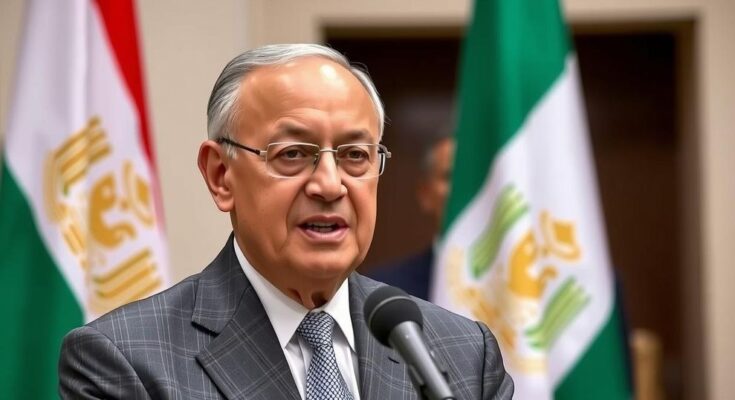Somalia’s President Hassan Sheikh Mohamud is set to visit Egypt to discuss recent developments with Egyptian President Abdel Fattah el-Sisi, particularly concerning Ethiopia and the Nile dispute. Tensions exist as both nations are skeptical of Somalia’s diplomatic role. Additionally, critics are wary of a perceived incoherent foreign policy, which may leave Somalia vulnerable in the Horn of Africa’s geopolitical landscape.
President Hassan Sheikh Mohamud of Somalia is poised to embark on a visit to Egypt shortly after his impending return to Mogadishu. This visit is expected to focus on discussions with Egyptian President Abdel Fattah el-Sisi regarding recent developments stemming from President Mohamud’s visit to Ethiopia, where he held critical discussions with Prime Minister Abiy Ahmed. The geopolitical context surrounding the Nile River and the Grand Ethiopian Renaissance Dam (GERD) serves as a backdrop for this diplomatic engagement.
Tensions between Egypt and Ethiopia regarding the GERD have prompted President Mohamud to seek a balancing act between the two nations, although sources indicate skepticism from both leaders about Somalia’s influence in the ongoing dispute. Historically, Villa Somalia had formed alliances with Egypt and Eritrea against Ethiopia, a stance that has shifted following the Ankara Agreement, which initiated a thawing of relations between Somalia and Ethiopia.
Reports indicate that Somalia’s Foreign Minister, currently in Cairo, is actively working to convince Egyptian officials that military confrontations with Ethiopia are impractical given Somalia’s limited military resources and the complex internal dynamics within the country. This diplomatic dialogue aims to foster a collaborative relationship with Ethiopia to challenge the maritime agreement between Somaliland and Ethiopia.
During his visit to Addis Ababa, President Hassan Sheikh received an enthusiastic reception, with visible displays of support for Somalia in the capital. However, this positive reception has reportedly generated tension in Cairo, complicating the already delicate relations among Somalia, Egypt, and Ethiopia. Critics of President Mohamud’s foreign policy argue that it appears disorganized and driven by personal priorities rather than a cohesive national strategy, which exposes Somalia to undue external influences amidst the geopolitical rivalry in the Horn of Africa.
The geopolitical landscape in the Horn of Africa has been historically complex, particularly concerning the interactions among Somalia, Egypt, and Ethiopia. The primary focus of tension is the Grand Ethiopian Renaissance Dam (GERD) that Ethiopia constructed on the Nile, impacting water resources critical to Egypt. Somalia’s previous alignment with Egypt and Eritrea against Ethiopia represents a shift in diplomatic stance as it navigates recent agreements and partnerships, such as the Ankara Agreement, which facilitated improved relations with Ethiopia. This backdrop elucidates the delicate nature of regional diplomacy and Somalia’s attempts to position itself favorably between its competing neighbors.
In summary, President Hassan Sheikh’s anticipated visit to Egypt underscores Somalia’s evolving diplomatic role amidst the intricate geopolitical dynamics involving Ethiopia and Egypt. As President Mohamud seeks to balance relationships and address longstanding disputes, the challenges inherent in Somalia’s foreign policy highlight the need for a cohesive national strategy. The ability to navigate these complex relationships will be vital for Somalia’s sovereignty and regional stability moving forward.
Original Source: www.garoweonline.com




